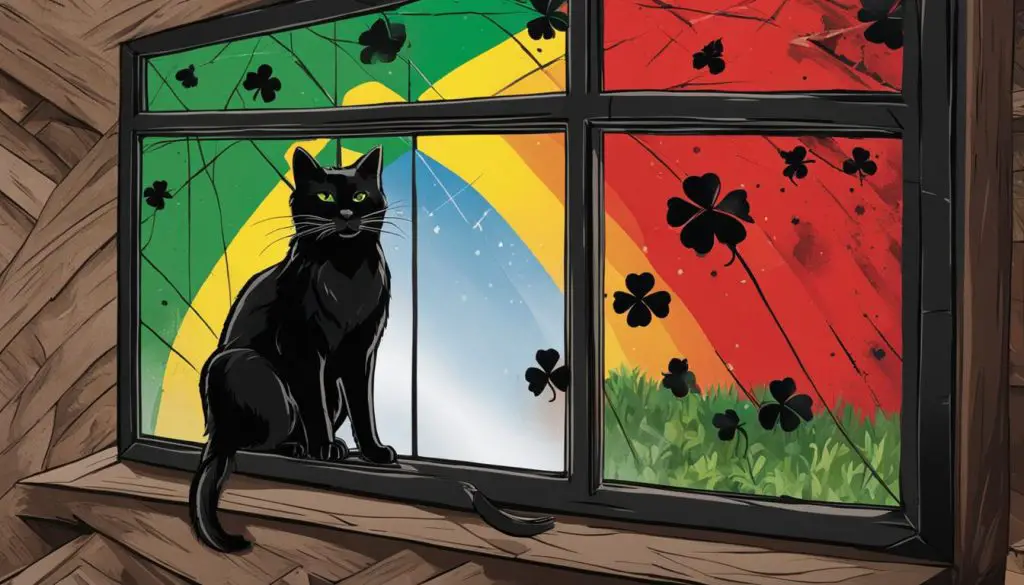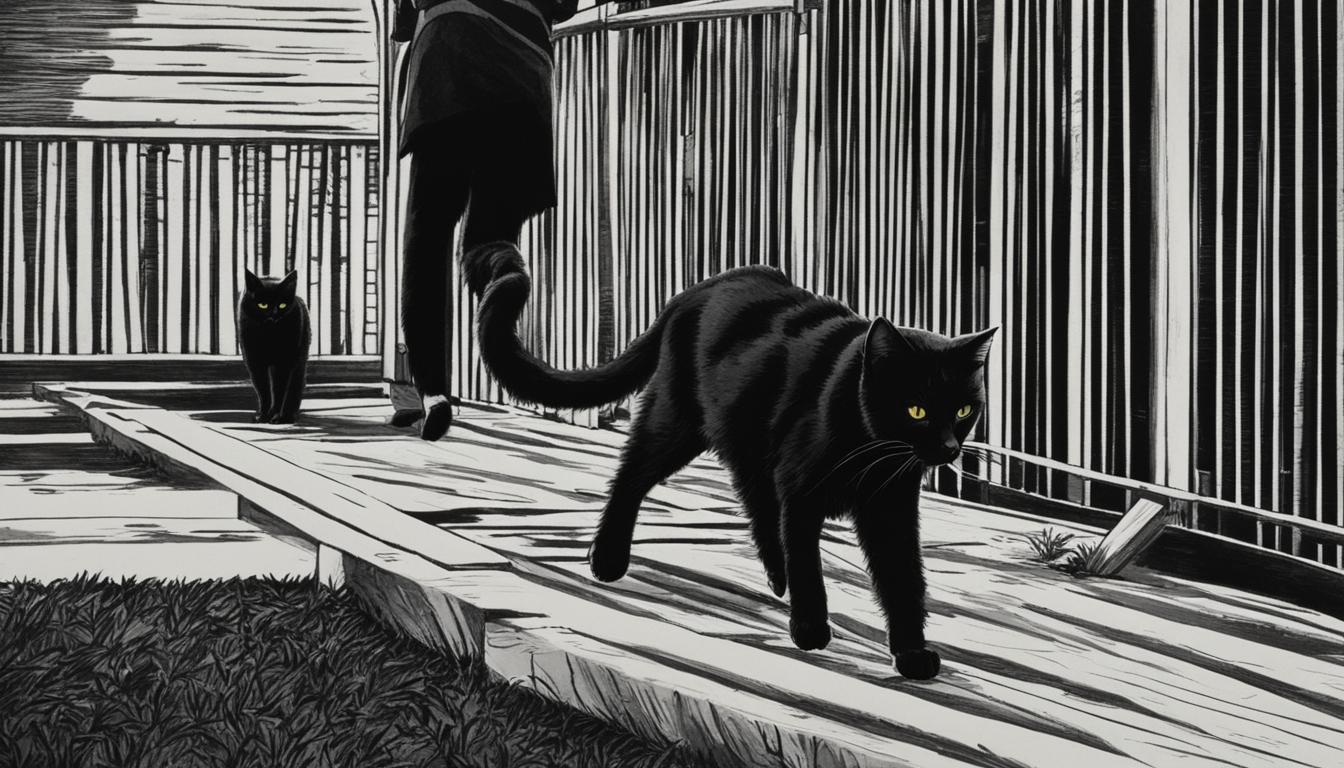Discover the truth about the age-old superstition of Friday the 13th. Is it really a day of bad luck or just a myth? Let’s dive into the origins and superstitions surrounding this notorious date.
Friday the 13th is a superstition deeply rooted in Western culture. Known as paraskevidekatriaphobia, the fear of this date is widespread, although its origins are difficult to trace. Different cultures have their own superstitions surrounding specific days, such as Tuesday the 13th in Greece and Spanish-speaking countries or Friday the 17th in Italy. However, Friday the 13th is the most infamous and captures our attention.
Contents
- 1 The Historical Origins of Friday the 13th Superstitions
- 2 Friday the 13th in Popular Culture
- 3 Debunking Friday the 13th Superstitions
- 4 Friday the 13th as Both Good and Bad Luck
- 5 Historical Events on Friday the 13th
- 6 Conclusion
- 7 FAQ
- 7.1 Is Friday the 13th really unlucky?
- 7.2 What are the origins of Friday the 13th superstitions?
- 7.3 How does Friday the 13th impact popular culture?
- 7.4 Are there any scientific facts supporting Friday the 13th superstitions?
- 7.5 Is Friday the 13th considered good luck or bad luck?
- 7.6 What historical events have occurred on Friday the 13th?
- 8 Source Links
Key Takeaways:
- Friday the 13th is a well-known superstition with deep historical roots.
- Various cultures have different superstitions surrounding specific days.
- The fear of Friday the 13th is known as paraskevidekatriaphobia.
- Uncover the origins and historical events associated with this superstition.
- Explore the different beliefs surrounding Friday the 13th as either good or bad luck.
The Historical Origins of Friday the 13th Superstitions
The origins of Friday the 13th superstitions can be traced back to both Norse mythology and Christian traditions. In Norse mythology, the mischievous god Loki crashed a banquet in Valhalla, bringing the number of gods in attendance to 13. This event was said to have led to the death of the god Balder, which brought about the association of the number 13 with bad luck.
In Christian tradition, Friday is associated with significant events such as the crucifixion of Jesus Christ and the betrayal of Jesus by Judas Iscariot. According to the biblical account, Jesus was crucified on a Friday, and there were 13 guests present at the Last Supper, including Judas. These biblical connections further contributed to the negative perception of Friday the 13th.
“Friday the 13th has a biblical origin – Friday was the day of the week on which Christ was crucified.” – Clifford Nass
Over time, the combination of Norse mythology and Christian traditions merged to form the superstition surrounding Friday the 13th. The belief in the unluckiness of this date spread throughout Western culture, leading to various rituals, precautions, and cultural practices aimed at warding off potential harm.
Famous Historical Events on Friday the 13th
It is interesting to note that significant historical events have occurred on Friday the 13th. One notable example is the arrest of the Knights Templar on Friday the 13th, October 1307. This event had a profound impact on the Knights Templar and played a role in the perpetuation of the superstition surrounding the date.
Other notable historical events on Friday the 13th include the German bombing of Buckingham Palace during World War II, the murder of Kitty Genovese in 1964, and the tragic crash of the Costa Concordia cruise ship in 2012. While these events have further fueled the superstitions associated with Friday the 13th, it is important to remember that they are coincidental and not indicative of any inherent supernatural power.
By understanding the historical origins of Friday the 13th superstitions, we gain insight into the cultural beliefs and traditions that have shaped our perception of this date. Whether you choose to believe in the superstitions or not, it remains a fascinating aspect of Western culture that continues to captivate our collective imagination.
Friday the 13th in Popular Culture
Friday the 13th has become deeply ingrained in popular culture, inspiring numerous books, movies, and other forms of media. The psychological effects of Friday the 13th are significant, as many individuals experience heightened stress and caution on this date. The cultural significance of this superstition lies in its ability to evoke fear and anxiety in people.
In the early 1900s, Thomas W. Lawson’s novel “Friday, the Thirteenth” introduced the superstition to a wide audience, further fueling the belief in its negative connotations. The horror movie franchise “Friday the 13th” capitalized on the fear associated with this date, featuring the iconic character Jason Voorhees and creating a cultural phenomenon that endures to this day.
Friday the 13th has become synonymous with horror and suspense, captivating audiences and reinforcing the superstition. The psychological impact of this date on individuals cannot be underestimated, as it has become deeply rooted in Western culture.
Despite the lack of scientific evidence to support Friday the 13th superstitions, the psychological and cultural factors at play cannot be ignored. People have a tendency to attribute negative events or accidents to this date, even if they are merely coincidences. It is important to recognize that these beliefs and fears are deeply ingrained in society and can have a profound impact on individuals’ thoughts and behavior.
Next, we will explore the debunking of Friday the 13th superstitions, shedding light on the beliefs and fears surrounding this date and offering a critical examination of their validity.
Debunking Friday the 13th Superstitions
The fear and superstition surrounding Friday the 13th have been deeply ingrained in Western culture, but it’s important to question the validity of these beliefs. Despite the widespread belief in the unluckiness of this date, there is little scientific evidence to support such superstitions. The fear associated with Friday the 13th is often based on anecdotal tales and personal experiences, rather than factual data.
“People have been conditioned to think of Friday the 13th as a day of bad luck, but it’s purely a cultural construct. There is no inherent supernatural power associated with this date,” says Dr. Sarah Johnson, a psychologist specializing in superstitions and beliefs.
Beliefs and fears related to Friday the 13th stem from cultural conditioning and psychological factors. The power of suggestion plays a significant role in how individuals perceive events on this specific date. If people expect something bad to happen, they are more likely to interpret any negative occurrences as proof of the superstition.
| Common Friday the 13th Superstitions | Debunking the Superstition |
|---|---|
| Breaking a mirror brings seven years of bad luck | There is no evidence to support this belief. It is merely a superstition that has been perpetuated over time. |
| A black cat crossing your path brings bad luck | This belief has its roots in medieval Europe, where black cats were associated with witchcraft. However, there is no logical reason to believe that a black cat crossing your path is an omen of bad luck. |
| Avoiding travel and major decisions on Friday the 13th | There is no rational basis for avoiding travel or making important decisions on this date. It is purely a matter of personal belief. |
It is important to critically examine these superstitions and challenge their validity. By doing so, we can free ourselves from unnecessary anxiety and fear associated with Friday the 13th.
Friday the 13th as Both Good and Bad Luck
Friday the 13th is often associated with bad luck, but did you know that it can also be seen as a day of good fortune? While the superstition surrounding this date has led many to fear it, there are alternative beliefs that challenge the notion of Friday the 13th as purely unlucky. In fact, some cultures and individuals view this day in a positive light.
In pagan times, Friday was associated with the divine feminine energy and was considered a lucky day for marriage. The number 13 has also been seen as a symbol of femininity and fertility. These positive connotations may contribute to the belief that Friday the 13th can bring good luck and blessings. Singer Taylor Swift, for example, has embraced Friday the 13th as her lucky day and even released her album “Fearless” on a Friday the 13th.
“I was born on the 13th. I turned 13 on Friday the 13th. My first album went gold in 13 weeks. My first #1 song had a 13-second intro,” Swift once said. “So basically whenever a 13 comes up in my life, it’s a good thing.”
It is important to recognize that beliefs surrounding luck are subjective and vary from person to person. While some individuals may experience good fortune on Friday the 13th, others may still hold onto the superstitions and perceive it as an unlucky day. The perception of Friday the 13th as either good or bad luck ultimately depends on individual beliefs and cultural conditioning.

The Belief in Good Luck on Friday the 13th
Despite the prevailing belief in the unluckiness of Friday the 13th, many people continue to hold onto the belief that it can bring good luck. This belief may stem from personal experiences or cultural traditions that associate certain days or numbers with positive outcomes. It is a reminder that superstitions and beliefs surrounding luck can be highly subjective and deeply ingrained in our cultural narratives.
| Good Luck Beliefs on Friday the 13th | Description |
|---|---|
| Marriage | Friday has been considered a lucky day for marriage in pagan traditions and folklore. |
| Feminine Energy | The number 13 has been associated with femininity and fertility, symbolizing abundance and prosperity. |
| Personal Experiences | Individuals who have experienced positive events or achievements on Friday the 13th may attribute their good fortune to the date. |
| Cultural Influences | Certain cultures and subcultures may have their own beliefs and customs that regard Friday the 13th as a lucky day. |
The Perceived Unluckiness of Friday the 13th
On the flip side, the belief in the bad luck associated with Friday the 13th is deeply ingrained in Western culture. This fear may be fueled by historical events, popular culture, and collective superstitions. While there is no scientific evidence to support the notion of inherent bad luck on this date, the psychological impact of cultural conditioning cannot be ignored.
- Fear and Anxiety: Many individuals experience heightened levels of stress and caution on Friday the 13th, influenced by the fear of potential misfortune.
- Superstitions and Taboos: Cultural superstitions surrounding Friday the 13th, such as avoiding certain activities or making travel plans, contribute to the perception of it being an unlucky day.
- Confirmation Bias: People are more likely to remember negative events that occur on Friday the 13th and attribute them to the superstition, reinforcing their belief in bad luck.
It is important to approach Friday the 13th with an open mind and question our beliefs about luck and superstitions. Whether you choose to embrace it as a day of good fortune or approach it with caution, the perception of Friday the 13th ultimately lies within each individual.
Historical Events on Friday the 13th
Throughout history, Friday the 13th has been marked by a series of significant events that have contributed to the superstitions surrounding this date. While it is essential to approach these events with a critical mindset and not attribute supernatural powers to them, they have undoubtedly left an indelible mark on popular culture and folklore. Here are some notable historical events that occurred on Friday the 13th:
The Arrests of the Knights Templar – October 13, 1307
On October 13, 1307, King Philip IV of France ordered the mass arrest of the Knights Templar, a powerful and wealthy medieval Christian military order. The Templars were accused of various crimes, including heresy and blasphemy. This event has since been associated with the idea of Friday the 13th as an unlucky day.
German Bombing of Buckingham Palace – September 13, 1940
During World War II, on September 13, 1940, German bombers targeted Buckingham Palace, the official residence of the British monarch. The attack resulted in significant damage to the palace, but fortunately, King George VI and Queen Elizabeth were unharmed. This event further fueled the superstitions surrounding Friday the 13th.
Murder of Kitty Genovese – March 13, 1964
March 13, 1964, marked the tragic murder of Kitty Genovese, a young woman who was brutally attacked and killed in Queens, New York. The case gained national attention as it was reported that numerous witnesses heard her cries for help but failed to intervene. The incident raised questions about bystander apathy and the nature of evil, cementing Friday the 13th as a day associated with darkness.
Crash of the Costa Concordia Cruise Ship – January 13, 2012
On January 13, 2012, the Costa Concordia, a luxury cruise ship, ran aground off the coast of Italy. The shipwreck resulted in the tragic deaths of 32 people and highlighted issues of maritime safety and negligence. This event garnered significant media attention and added to the already ominous reputation of Friday the 13th.
| Event | Date |
|---|---|
| The Arrests of the Knights Templar | October 13, 1307 |
| German Bombing of Buckingham Palace | September 13, 1940 |
| Murder of Kitty Genovese | March 13, 1964 |
| Crash of the Costa Concordia Cruise Ship | January 13, 2012 |

While these events have contributed to the superstitions surrounding Friday the 13th, it is crucial to remember that they are coincidental and should not be attributed to any inherent supernatural power. Superstitions are often rooted in cultural conditioning and personal beliefs rather than factual evidence. Whether you see Friday the 13th as a day of bad luck or simply dismiss it as a mere coincidence, the perception of this date ultimately remains subjective and influenced by cultural beliefs.
Conclusion
The superstition surrounding Friday the 13th is deeply ingrained in Western culture, but its origins are rooted in mythology, folklore, and historical events. While some individuals believe in the bad luck associated with this date, others see it as a day of good fortune. Ultimately, the perception of Friday the 13th as either good or bad luck is subjective and influenced by cultural beliefs. It is up to each individual to decide whether Friday the 13th is a day to fear or embrace.
FAQ
Is Friday the 13th really unlucky?
The belief that Friday the 13th is unlucky is a superstition that has deep roots in Western culture. However, there is little scientific evidence to support this belief.
What are the origins of Friday the 13th superstitions?
Friday the 13th superstitions have roots in Norse mythology and Christian traditions. In Norse mythology, the god Loki caused the death of the god Balder at a banquet where there were 13 gods. In Christian tradition, Friday is associated with events such as the crucifixion of Jesus Christ and the betrayal of Jesus by Judas Iscariot. The number 13 is also connected to the Last Supper, where 13 guests were present.
How does Friday the 13th impact popular culture?
Friday the 13th has been depicted in books and movies, popularizing the superstition. The horror movie franchise “Friday the 13th” introduced the character Jason Voorhees. The cultural significance of Friday the 13th lies in its ability to evoke fear and anxiety in people.
Are there any scientific facts supporting Friday the 13th superstitions?
There is little scientific evidence to support the superstitions surrounding Friday the 13th. The fear associated with this date is often based on anecdotal tales and personal experiences rather than factual data.
Is Friday the 13th considered good luck or bad luck?
While Friday the 13th is commonly associated with bad luck, there are also beliefs that it can be a day of good fortune. In pagan times, Friday was associated with the divine feminine and was considered a lucky day for marriage. The number 13 has been seen as a symbol of femininity and fertility. It ultimately depends on personal beliefs and cultural conditioning.
What historical events have occurred on Friday the 13th?
Throughout history, significant events have taken place on Friday the 13th, including the arrests of the Knights Templar, the German bombing of Buckingham Palace, the murder of Kitty Genovese, and the crash of the Costa Concordia cruise ship. However, these events are coincidental and not indicative of any supernatural power.





